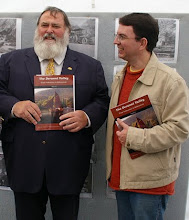The opening of the then Purity Supermarket in 1983 seems like light years ago. I took a keen interest in that development as the new supermarket was being built on the site of my grandmother's house. Purity had wanted to build a "food barn" on Hamilton Rd but the council and the then Town and Country Planning Commission acted to preserve High St as our commercial centre and insisted that the development occur in the central business district.
Thirty years later, that supermarket is now regarded as "small" despite being enlarged in the last decade. The number and range of product lines does not match that of supermarkets at Bridgewater and Claremont and elsewhere, and many people believe that a competitor is needed in the market. I agree, although I'm mindful that two small supermarkets at New Norfolk have failed in the last two years, including the original Purity site in High St.
The development proposal that went before last week's council meeting is more than a supermarket. It is a shopping complex with nearly 15,000 square metres of floorspace and I remain concerned about the impact it will have on businesses in the town centre, from the largest and longest-established, to the newest and smallest. An economic impact study commissioned by the developers says there will be a 21% drop in turnover across the town centre businesses. This, coupled with the New Norfolk Planning Scheme's stated intention of preserving the town centre, is why I voted against the development.
The following paragraphs are my speech notes from Thursday night's council meeting.
"Mr Mayor, it is exciting and pleasing to know that developers such as the Sadri brothers have such confidence in New Norfolk that they are prepared to spend millions of dollars on a shopping centre here.
"On the other hand there is understandable concern among some who fear that such a large development on the outskirts of town will fragment New Norfolk’s long established central business district as has occurred in similar towns around Australia.
"The report before us seeks to provide reassurance in the form of an economic impact assessment that says “the development is likely to reduce the average turnover of businesses in the CBD by 3%”. But is that really what it says?
"The impact study also refers to Woolworths as the only supermarket in the town centre and gives no consideration to the small supermarket that has been operated seven days a week by the same family for more than 30 years.
"This brings me to the question of what the council is being asked to approve. At a meeting with Mr Roostam Sadri on January 16 we were assured that this application was for a supermarket and “four or five” specialty shops including a petrol station and a takeaway that would open at night.
"According to the documents before us, this application is for a supermarket, seven specialty shops, and a petrol station and a takeaway. There is also a future building of 1250m2, and a further five warehouses or showrooms totalling 5600m2.
"So Mr Mayor, while the economic impact study is based on an assumed specialty shop floor space of 1000m2, this application is in fact for floor space of just under 10,000m2 of varying kinds, suggesting that the economic impact assessments are out by a factor of nearly 10. This does not include the 4200m2 supermarket with its own butcher and baker.
"Mr Mayor, it has been put to me that the council cannot refuse a development because it might be to the detriment of other businesses. If that is the case, why has the developer been put to the expense of commissioning an economic impact statement?
"What does our planning scheme say about all this? The introduction in Section 3.1 says the principal focus for retail, business, office and civic activities is within the existing town centre. Section 3.2 says the intention of the commercial zone, is 'to maintain the existing town centre of New Norfolk as the principal focus for retail, business, office and civic activities within the municipal area' and 'to consolidate commercial activity within the Zone through the efficient use of land and buildings.'
"The planning scheme also has a local business zone, with the intent to: 'limit the range of commercial activities to those that do not conflict with the intent of the Commercial Zone within the town of New Norfolk.' The planning scheme also has its special development zone for the former Royal Derwent Hospital site, but even this section says the council 'may impose conditions or restrictions to ensure compliance with the intent of the Scheme' and as we have heard, the intent of the scheme is to preserve the existing town centre.
"Mr Mayor, the application before us describes this proposal as a neighbourhood shopping centre that will be no threat to High St, but in fact at 14,135m2, the proposed shopping centre has nearly double the floorspace of the existing central business district, based on the figures provided in the impact study.
"Like many people, I would welcome a supermarket and takeaway on this site near the Gateway Estate, but not a major shopping centre with potential to devastate our existing town centre. The original plans for the Gateway Estate included just a local shop and a childcare centre on the opposite corner of Glebe Rd and, having changed the Gateway plan already, I respectfully ask the Sadris to think again."




